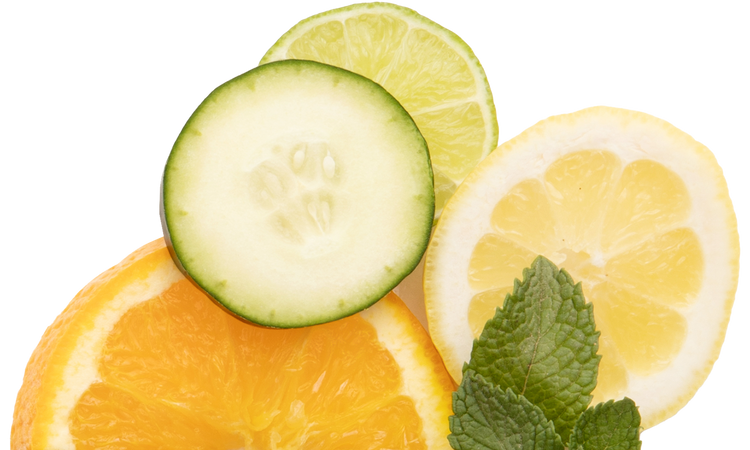You hear about it all the time…“gut health.” And more recently you’ve likely also heard the term “microbiome” floating around.
But WHY is there so much buzz about the microorganisms living in your gut?
Well, you may not know this, but a whole LOT goes on in your gut, and it’s not just digesting the sandwich you had for lunch.
What Is Gut Health And Why Does It Matter?
The gut microbiome is a community of trillions of microorganisms, mainly bacteria, that live inside the digestive tract, particularly in your intestines.
As odd as it may sound, these gut microbiota play a huge role in various bodily functions and your overall health, like digestion and nutrient absorption. Believe it or not, they even play a role in the strength of your immune system.
The balance and diversity of bacteria in the digestive tract can influence your health, so much so that when the gut flora (bacteria) is in a state of imbalance, it can cause a ton of issues like leaky gut, irritable bowel syndrome (IBS), gut dysbiosis, inflammatory bowel disease(IBD), candida overgrowth, autoimmune diseases and more.
8 Health Benefits of A Balanced Gut Microbiome
Imagine the human gut as an architectural blueprint for a building and the gut microbes as the builders constructing that foundation. Following the blueprint creates an environment for a healthy digestive system. The microbes work in harmony with beneficial bacteria to create a strong foundation, creating optimal health in the body.
This solid foundation creates the infrastructure that promotes weight loss, clear skin, balanced energy, and even improves mental health (yes, the gut and brain are connected).
Here are 8 benefits of a healthy digestive system:
-
It trains your immune cells to fight infections and keeps you resilient, which results in a strong immune system.
-
It strengthens the gut barrier, keeping you from experiencing gastrointestinal issues like bloating, gas, constipation, loose stools, and stomach pain.
-
It communicates with your brain to help stabilize your mood, increase overall feelings of well-being, and stabilize your mental health.
-
It plays a key part in helping to balance your blood sugar levels.
-
It allows you to uptake nutrients in food properly, leading to a reduction in cravings and binge-eating.
-
It regulates your hormones so that you can achieve more energy and have fewer hormonal swings.
-
It supports the central nervous system, which is responsible for optimal brain function.
-
It has an important role in promoting “good” HDL cholesterol and healthy triglyceride levels, reducing the risk of heart disease, stroke, and obesity.
The moral of this story? A healthy gut microbiome = a healthy you.
How Can I Reset My Gut Naturally?
Modern American culture often ignores the impact a healthy gut can have on your overall health.
Most people resort to taking probiotic supplements or eating kefir when they need extra support. However, this only works as a “bandaid” if you’re not feeding your gut with the good bacteria it needs on a consistent basis.
Here are some ways you can naturally reset your gut and start living healthier:
-
Increase Fiber Intake - The #1 way to achieve a healthier gut microbiome is to increase your daily intake of fiber from raw plants.
A recent study showed that people who ate a diverse diet of plants (30+ plants per week or more) from plant-based sources had more diverse bacteria in their gut microbiomes than those who ate less [1]. Just like a garden needs a diverse community of plants to thrive, our digestive health requires a diverse microbiota to maintain optimal health.
-
Prioritize Gut-Supporting Food Groups - Eat plenty of fruits and vegetables. Probiotic-rich fermented foods like sauerkraut or kimchi are great options for populating your gut with that beneficial bacteria. Just make sure its from a trusted source and doesn’t have any added sugars or preservatives.
Healthy whole grains, like gluten-free oats and quinoa are some more great options to incorporate into your diet.
Beans and legumes, like lentils, navy beans, and split peas made a great addition to any high fiber diet.
Nutritionist Tip: Be wary of Kombucha. Many brands resort to adding sugars and other artificial sweeteners that can actually be detrimental to your gut microbiome.
-
Eat Your Prebiotics - You often hear a ton about probiotics, but not much about prebiotics. Prebiotics feed the gut microbiota and keep them thriving.
-
Hydrate - Hydration plays a key role in restoring your gut flora. Dehydration often leads to constipation and hard to pass stools. Proper hydration from water, as well as herbal teas, is key to keep you flowing healthfully.
-
Get Enough Sleep - It’s well known that not getting enough sleep is harmful to your overall health... But what is interesting is how sleep impacts the gut. A lack of sleep causes issues with your immune function. As a result, inflammatory cytokines, (proteins that control inflammation) become active causing gut issues, like colitis and inflammatory bowel disease (IBD). [2]
What Foods Should I Eat To Reset My Gut?
While we briefly touched on some foods to eat above, here are some more gut-friendly foods to add to your shopping list:
-
Apricots
-
Prunes
-
Mangos
-
Strawberries
-
Apples
-
Bananas
-
Blueberries
-
Leeks
-
Dark Leafy Greens
-
Bitter Greens (radicchio, endive, etc)
-
Flax seeds
-
Almonds'
-
Raw Honey
-
Olive oil (to drizzle on salads)
These foods are rich in polyphenols, which add diversity to the gut [3]. They do so by populating the gut microbiota by boosting metabolism, and immunity through their naturally occurring anti-inflammatory properties [4].
Sip Your Way To Better Gut Health
Now you can take the steps to improve the health of your gut microbiome, too. Don't miss out on the opportunity to revitalize your gut health—order now and experience the benefits firsthand.
Sources:

